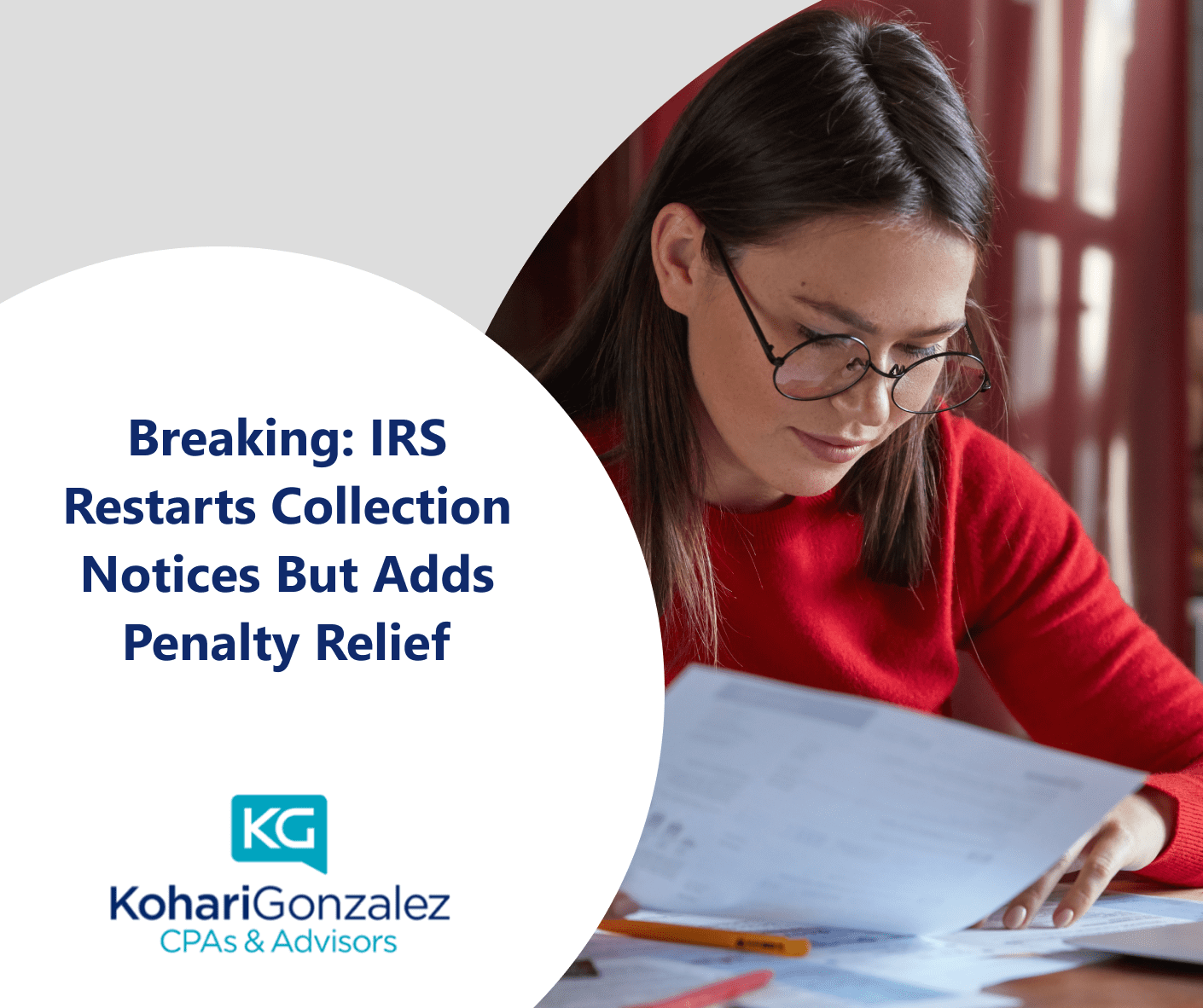
For the roughly 4.7 million entities that did not receive automated collection reminder notices during the pandemic, the Internal Revenue Service (IRS) has introduced new penalty relief. This is a significant development to help individuals, businesses, and tax-exempt organizations struggling with back taxes.
About $1 billion in penalty relief is being distributed by the IRS, mostly to help those whose yearly income is less than $400,000. For taxpayers who did not pay their debts in full after receiving the first notification, failure-to-pay penalties accumulated as a result of the pandemic's temporary suspension of automated reminders.
Prior to beginning routine collection notifications for the tax years 2020 and 2021, the IRS takes proactive measures to remedy this. Next month, it intends to send out special reminder letters informing taxpayers of their obligations, offering easy ways to pay, and detailing the amount of any relevant penalty reduction.
For those unable to pay their full balance, the IRS encourages them to visit IRS.gov/payments to make arrangements. Additionally, the IRS is waiving failure-to-pay penalties for eligible taxpayers affected by this situation for tax years 2020 and 2021, which are estimated to cover 5 million tax returns and save taxpayers $1 billion.
The penalty relief is automatic, requiring no action from eligible taxpayers. The IRS has adjusted individual accounts first, followed by business accounts and, subsequently, trusts, estates, and tax-exempt organizations. Notice 2024-7 PDF outlines how the agency is providing relief and addressing COVID-19-related challenges.Commissioner Danny Werfel underlined the IRS's dedication to keeping an eye out for taxpayers, particularly those who have been without notice for a long time. This penalty relief is a sensible way to help those whose tax payments have unexpectedly increased.
All eligible taxpayers—individuals, corporations, trusts, estates, and tax-exempt organizations—with an assessed tax of less than $100,000 for the 2020–2021 tax year are immediately eligible for this relief. The IRS will return money to a taxpayer or apply it to another unpaid tax obligation if they have already paid failure-to-pay penalties for certain tax years.
It is imperative that impacted taxpayers comprehend the qualifying requirements and automatic nature of this relief. Only taxpayers with assessed taxes under $100,000 are eligible for the penalty reduction, which ends on April 1, 2024, for those who do not take advantage of it. If this is you, getting expert assistance may be very helpful in navigating these changes, avoiding traps, and making sure that your federal tax responsibilities are met.
Our team of tax professionals is available to help; get advice catered to your unique situation by getting in touch with our office right now.



